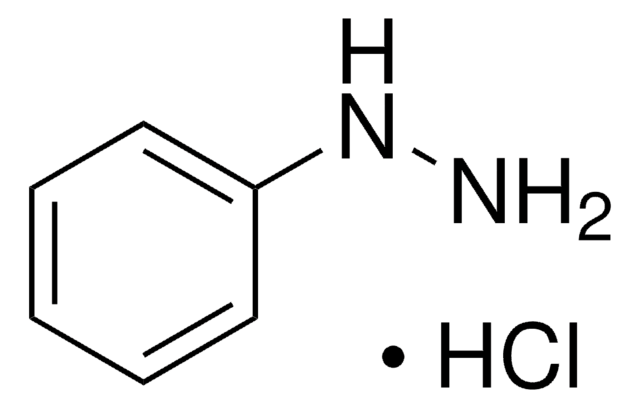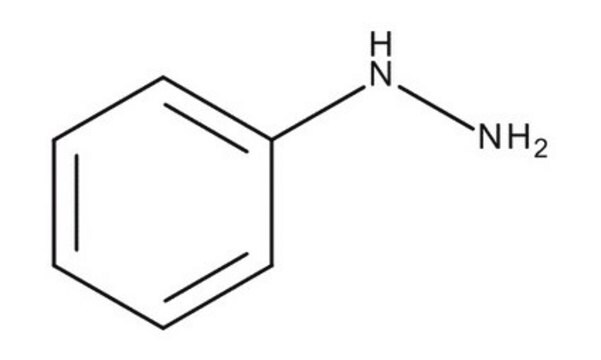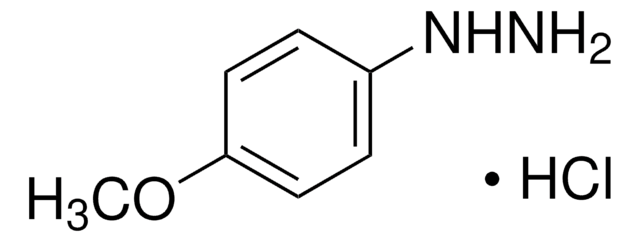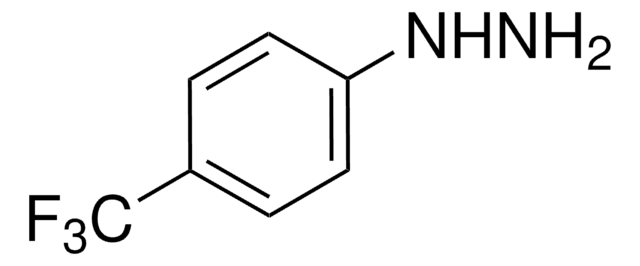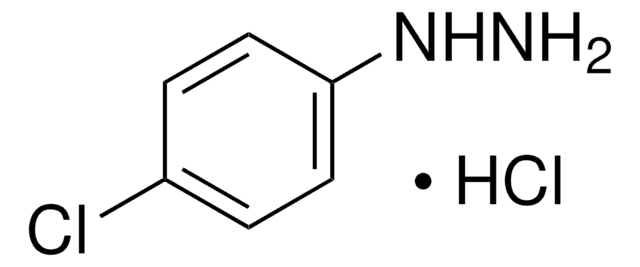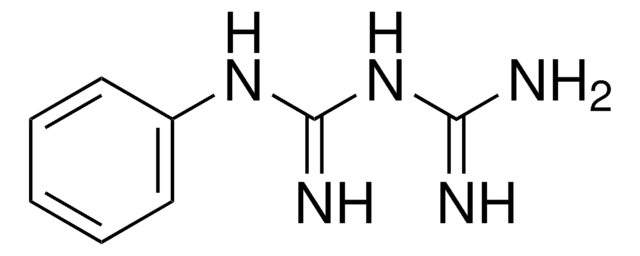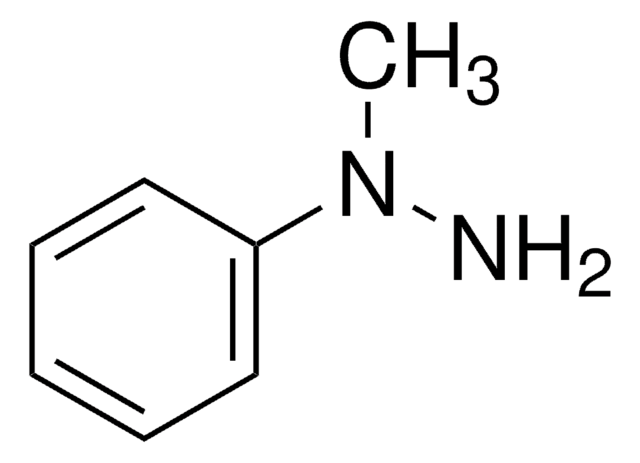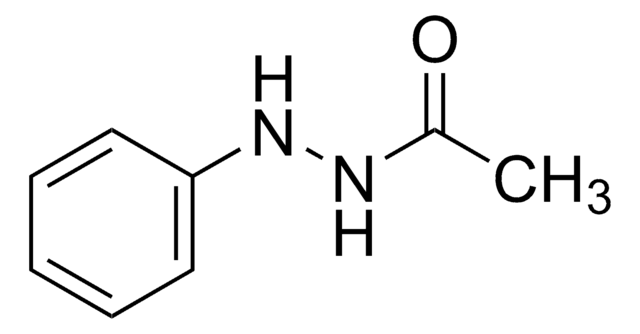P26252
Phenylhydrazine
97%
Synonym(s):
Hydrazinobenzene, Monophenylhydrazine
About This Item
Recommended Products
vapor density
4.3 (vs air)
Quality Level
vapor pressure
<0.1 mmHg ( 20 °C)
Assay
97%
autoignition temp.
345 °F
refractive index
n20/D 1.607 (lit.)
bp
238-241 °C (lit.)
mp
18-21 °C (lit.)
density
1.098 g/mL at 25 °C (lit.)
SMILES string
NNc1ccccc1
InChI
1S/C6H8N2/c7-8-6-4-2-1-3-5-6/h1-5,8H,7H2
InChI key
HKOOXMFOFWEVGF-UHFFFAOYSA-N
Looking for similar products? Visit Product Comparison Guide
Application
- 4, 4′-(arylmethylene)-bis(3-methyl-1-phenyl-1H-pyrazol-5-ol)s by reacting with aryl aldehydes and acetoacetates in presence of N-bromo sulfonamide as a catalyst via one-pot pseudo-five-component condensation.
- Thiazolidinones by treating with mercaptoacetic acid and aldehydes or ketones.
- 5-[3,3,3-trifluoro-2-(phenylhydrazono)propyl]-1-phenyl-1H-pyrazole-3-carboxylic acid by reacting with 6-(trifluoromethyl)comanic acid.
It can be also used as a precursor for the preparation of selective carboxymethylated products at N-1 and N-2 by reacting with dimethyl carbonate (DMC) in the presence of a Bronsted base and metal salts as a catalyst.
Signal Word
Danger
Hazard Statements
Precautionary Statements
Hazard Classifications
Acute Tox. 3 Dermal - Acute Tox. 3 Inhalation - Acute Tox. 3 Oral - Aquatic Acute 1 - Carc. 1B - Eye Irrit. 2 - Muta. 2 - Skin Irrit. 2 - Skin Sens. 1 - STOT RE 1
Storage Class Code
6.1A - Combustible, acute toxic Cat. 1 and 2 / very toxic hazardous materials
WGK
WGK 3
Flash Point(F)
192.2 °F - closed cup
Flash Point(C)
89 °C - closed cup
Personal Protective Equipment
Choose from one of the most recent versions:
Already Own This Product?
Find documentation for the products that you have recently purchased in the Document Library.
Customers Also Viewed
Articles
Structural modifications of proteins are essential to living cells. When aberrantly regulated they are often the basis of disease. Glycans are responsible for much of the structural variation in biologic systems, and their representation on cell surfaces is commonly called the “glycome.”
Our team of scientists has experience in all areas of research including Life Science, Material Science, Chemical Synthesis, Chromatography, Analytical and many others.
Contact Technical Service